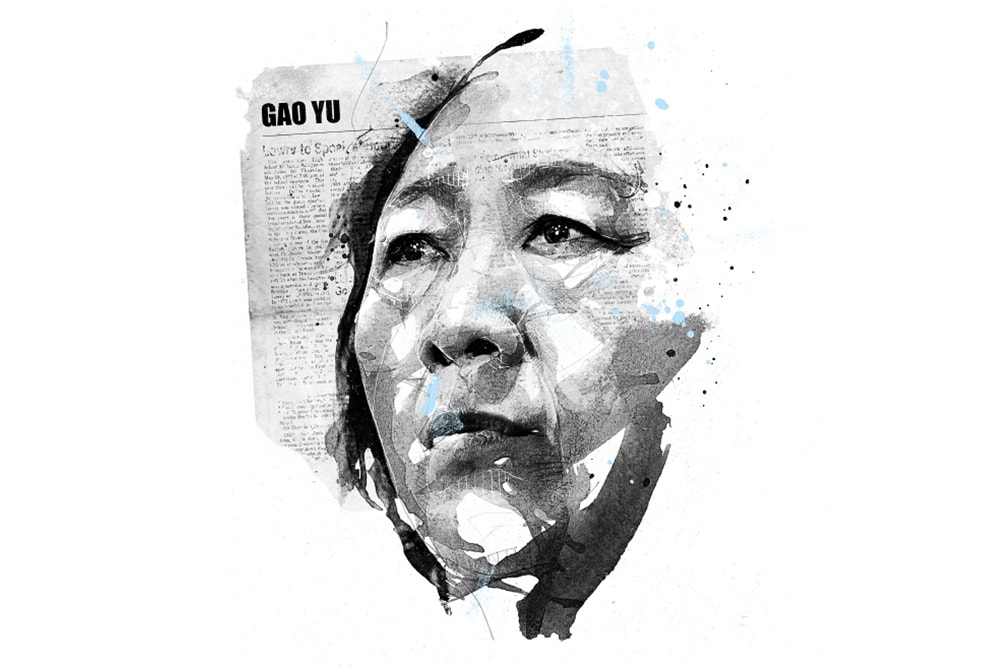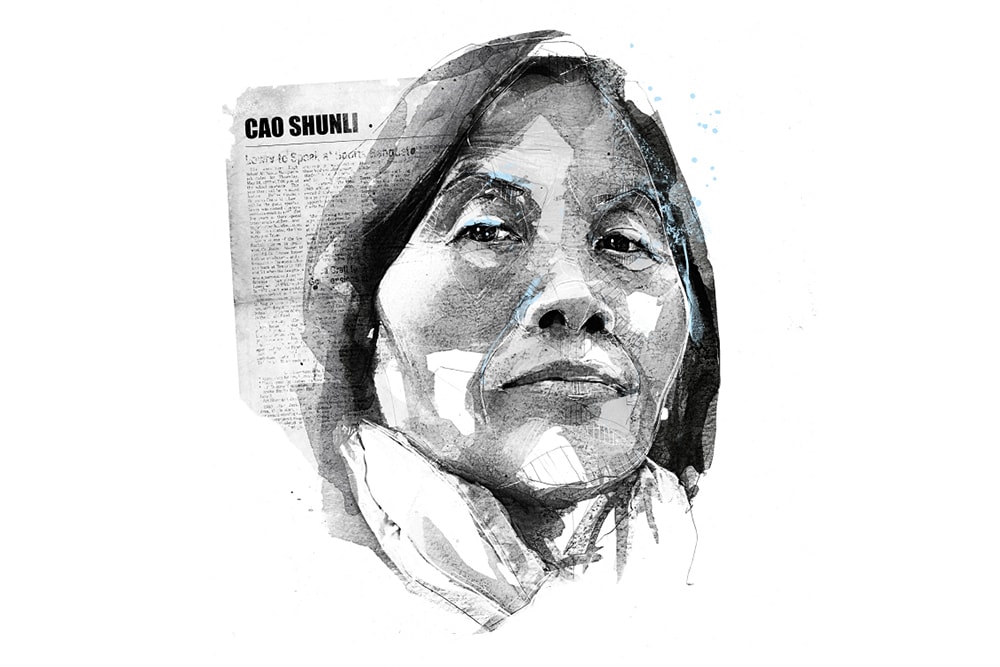Journalist Gao Yu has been defending democracy in China for more than three decades. A Beijing court upheld the conviction against her for "leaking state secrets" in 2015. She was given a five-year sentence but was released on medical parole due to her deteriorating health. Her house arrest supposedly ended in 2019, but she remains under strict surveillance.
During her acceptance speech for the 1995 IWMF Courage in Journalism Award, journalist and lawyer Gao Yu said: Between freedom and dictatorship, between truth and lies, there is no middle ground ... I would like to recall the words of Shi Liangcai, a Chinese reporter and pioneer of the independent media, 'You have a gun. I have a pen'. History has given me the choice of a pen.
Journalist Gao Yu has been defending democracy in China for more than three decades. A Beijing court recently upheld a conviction against her for “leaking state secrets”. She is expected to serve out the remainder of her sentence under house arrest, which was welcome news given her deteriorating health.
In April 2014, Gao Yu was arrested, accused of ‘illegally provid[ing] state secrets to foreigners’ for having passed on a confidential document to a foreign website. Enigmatically referred to as ‘Document No. 9’, it is a Communist Party strategy paper which warns against ‘seven perils’ including ‘universal values’, civil society and a ‘Western-style’ free press. Gao Yu had, in 2013, written a commentary on the document but says she had not leaked it to the Western media.
As long ago as 1966, Gao Yu first showed her willingness to risk her freedom when she helped a well-known dissident, Ding Zilin, escape imminent arrest. She started out as a journalist in 1979, working for the mainstream China News Service. In 1988 she joined the progressive Economics Weekly as deputy editor. Run by dissident intellectuals, the weekly was shut down after the 1989 Tiananmen protests. By then, Gao Yu had become known and respected for her critical political analysis and inside knowledge of the Chinese Communist Party. She earned the label of ‘enemy of the people’ for her articles described by the Beijing mayor as a ‘political program’ for ‘turmoil and rebellion’.
In May 1989, Gao Yu was a key figure in the Tiananmen Square protests, and, as the mood darkened, meeting with the students to encourage them to leave the square before soldiers moved in. Unsuccessful in this, she then helped to draft a proposal in which the students would end the protests if the army did not enter Beijing. She was among the first to be arrested just before the crackdown. Her whereabouts unknown, for three months her family feared she was dead. She was held without formal charge until her release 15 months later.
Then, in 1993, Gao Yu was arrested again, this time to serve six years for leaking ‘state secrets’ to Hong Kong newspapers. Her arrest came just days before she was due to leave for the USA to take up a fellowship at Columbia University. She was freed on health grounds in 1999 a few months before her sentence was due to expire. On her release she continued to freelance for a variety of press in China and Hong Kong as well as for Deutsche Welle.
Friends were alerted to Gao Yu’s latest arrest when she did not turn up as expected to an event marking the 25th anniversary of the Tiananmen Square protests on 26 April 2014. Nothing was known of her whereabouts until 8 May when state television broadcast a ‘confession’ in which Gao Yu, her face blurred, admitted to having ‘threatened national interests’ and that she was ‘deeply remorseful’. She later retracted that confession, saying that it had been made under duress when threats were made to arrest her son. In July 2015 the Committee to Protect Journalists spoke to Gao Yu’s lawyer who said that her health was poor, and when he had met her in prison, she told him that she feared she could die before she would be freed. He also spoke about pressure being exerted on her family, and that her son had been warned against speaking in public about his mother.
Following a closed hearing held on 24 November, the Beijing high court ruled on 26 November to reduce her sentence to five years. However it did not overturn Gao Yu’s conviction for ‘leaking state secrets abroad’. While welcoming the news that she would serve the remainder of her sentence under house arrest, PEN and other international organisations continue to condemn her conviction and sentence and to call for her immediate and unconditional release.
Over the years, Gao Yu has earned many awards, including in 1995 the International Women’s Media Foundation Courage in Journalism Award, the World Association of Newspaper’s Golden PEN of Freedom Award also in 1995, and in 2000 she was honoured as an International Press Institute World Press Freedom Hero.
In 1997 Gao was the first ever recipient of the UNESCO/Guillermo Cano World Press Freedom prize, leading China to threaten to withdraw from the organisation. Today, the Chinese government is no more open to scrutiny than it was then.
On 26 November 2015, she was released from jail on medical parole and has served the rest of her sentence under house arrest.
In March 2016, her house was raided by at least 20 plainclothes police officers for building a garden which was allegedly an ordinance violation. But this was believed to be a retaliation after her work as a journalist was praised by then-German President Joachim Gauck. She collapsed after her son was beaten and detained by the police. She reportedly had no access to her state pension or medical insurance, and groups called for her to be allowed to seek medical care abroad.
Gao’s activities, especially her online postings, remained under strict surveillance. She was visited by security officers in 2017 after expressing concern for Nobel Peace Prize laureate Liu Xiaobo on social media. Her five-year prison term supposedly ended in 2019, but former detainees fear that she continues to be monitored by state authorities and is still denied her full liberties.
In June 2020, at the height of the pandemic lockdown, her family was harassed and her son was dismissed from work after she shared posts about the impact of COVID-19 in the community. “The price I paid for posting the news about roadblocks and scenes of police cars, is my son losing his job. It is a sheer case of political implication and persecution.”
Illustration by Florian Nicolle



